Shankar Mahadevan
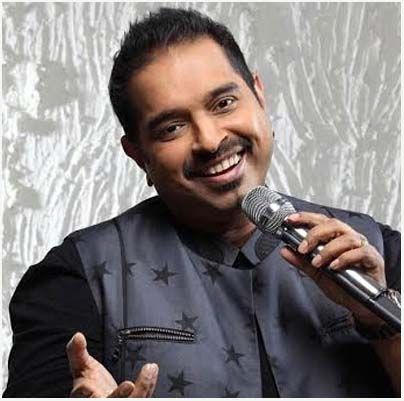
Subscribe to read full article
This section is for paid subscribers only. Our subscription is only $37/- for one full year.
You get unlimited access to all paid section and features on the website with this subscription.
Not ready for a full subscription?
You can access this article for $2 , and have it saved to your account for one year.
- Born: 3 March 1967 (Mumbai)
- Primary Cinema: Hindi
- Spouse: Sangeeta Shankar Mahadevan
At the MTV India Music summit in 2018, lyricist and writer Prasoon Joshi aptly described multi-faceted Grammy award-winning singer, musician, and composer Shankar Mahadevan saying, “Having jammed with global musicians cross genres like jazz, blues, western classical, Shankar has been intermingling his very own style. When he performs his music is there at that moment and is there to stay...as he effortlessly creates an aura that enthralls his listeners to experience an absolute bliss...his every rendition exemplifying the very 'Shankarness' in it!”
After taking the advertising industry by storm with the Cadbury jingle Kuch khaas hai zindagi main, Mahadevan has gone on to carve an admirable body of work both as a singer and music composer in multiple languages like Hindi, Tamil, Telugu and Kannada. Singing for more than 500 films, some of his best known songs include Breathless, Suno gaur sey duniya walo, Kehti hai yeh hawa, Saiyaan re, Sapnon se bhare naina, Dil chahta hai, Baawre, Kajra re, Pretty woman, and Aaj kal zindagi, among others. He is known for blending the classical technique into his compositions and renditions in way that makes them enjoyable even to the lay person, seamlessly merging the barriers between classical and film music. Part of the Shankar–Ehsaan–Loy trio that composes music for Indian films, some of films he has composed for include Dil Chahta Hai (2001), Kal Ho Naa Ho (2003), Kabhi Alvida Naa Kehna (2006), My Name Is Khan (2010), Zindagi Na Milegi Dobara (2011), Bhaag Milkha Bhaag (2013), Dil Dhadakne Do (2015), and Toofaan (2021).
Awards he has been bestowed with include the Padma Shree in 2019 for his contribution to film music under the Arts category, the National Film award for best male playback singer for Yenna solla pogirai (Kandukondain Kandukondain, 2000), the Filmfare award for best male playback singer – Telugu – for Chandrullo (Nuvvostanante Nenoddantana, 2005), the Swaralaya Kairali Yesudas award for outstanding contribution to Indian film music, the National Film award for best male playback singer for Maa (Taare Zameen Par, 2007), the Kerala State Film award for best male playback singer for Kalyana kacheri (Madampi, 2008), the Lata Mangeshkar award by the government of Andhra Pradesh, and the National Film award for best male playback singer for Bolo na (Chittagong, 2012). In 2023, he was awarded an honorary doctorate by Birmingham City University. In 2024, he won the Grammy award for best global music album for This Moment as a member of Shakti.
He was born on 3 March 1967 in Chembur, Mumbai into a Tamil Iyer family originally from Palakkad, Kerala. As part of the music culture that prevails in most South Indian homes, where children are encouraged to learn either Carnatic music or Bharatnatyam or any form of art, he chose to get trained in Carnatic music. Once, he got hold of a harmonium at a relative’s place and started playing the song Chal chal chal mere hathi; hearing him, his parents realised his inclination towards music. He began training in the veena at the age of five under Shri Lalitha Venkataraman. While learning to play a kriti from his guru, the latter told him to also sing it in order to execute it well, thereby setting off his interest in singing. He studied music under Pandit Shrinivas Khale and T R Balamani.
An alumnus of Our Lady of Perpetual Succour High School, Chembur, when it came to doing his graduation and choosing his vocation, he was asked to do engineering and he complied. Despite his dedication to music and his fascination with studios and musicians, there was a lack of clarity about a career in music at the time. Graduating in 1988 with a degree in Computer Science and Software Engineering from the Ramrao Adik Institute of Technology in Navi Mumbai, affiliated to Mumbai University, he went on to work as a software engineer for the company, Leading Edge.
He, however, continued to be inspired by music. Since an early age, he was inspired by classical musicians like Shrinivas Iyer, M S Subhalaxmi, Mehndi Hassan, Pandit Jasraj, Lata Mangeshkar, Mohammed Rafi, and Kishore Kumar. Songs like Abi na jao chor kar kept him wondering how they created such compositions and how to write such music.
In an interview to Society Achievers, Mahadevan credited his parents with discovering and nurturing his musical talent. “I owe everything to my parents, because at a very young age, they discovered my inclination and interest towards music. And whatever our economic condition was, they did not bother about it, and always encouraged me, by getting me taught by the best of teachers and buying me the best instruments, and constantly paying attention to music education, equally in magnitude as to my regular education. So that was how hip they were, they are, my mother still is - you know, I still live with my mother. Everything is dedicated to them.”
Eventually, he made the decision to dive completely into the realm of music. As he explained it, “It was an idea, and a wish, or a dream that was brewing inside for a very, very, very long time…But I had to ask myself: is this what I want to do for the rest of my life, sit in front of a monitor, and just develop software for some arbit person whom I don't even know, I have no connection with? Or do I want to just enjoy myself doing music, which is an absolute soul-satisfaction situation. So I had to take that call and plunge into it. It took a while, and a lot of guidance and help from my family, my friends, my near and dear ones, and the advice of the woman whom I would marry. A lot of people helped me take my decision.”
From singing ad jingles, he garnered early fame as an indipop star with his fusion of Carnatic, Hindustani and Jazz. At that time, his non-film album, Breathless topped the Indian music charts in 1998. His voice quality, range, and control made him an instant hit.
Entering the realm of playback singing, he quickly struck it big with films such as Oh Darling Yeh Hai India (1995), Akele Hum Akele Tum (1995), Border (1997), Pardes (1997), Dushman (1998), Kareeb (1998), Kuch Kuch Hota Hai (1998), Biwi No.1 (1999), Vaastav: The Reality (1999), Shool (1999), and Thakshak (1999). The new millennium brought films like Hera Pheri (2000), Kandukondain Kandukondain (2000), Mission Kashmir (2000), Lagaan: Once Upon A Time In India (2001), Dil Chahta Hai (2001), Daddy (2001), Bunty Aur Babli (2005), Ghajini (2005), Honeymoon Travels Pvt Ltd (2007), Salaam-e-Ishq (2007), Johnny Gaddaar (2007), Don (2007), Dostana (2008), Luck By Chance (2009), Wake Up Sid (2009), My Name Is Khan (2010), Raajneeti (2010), Guzaarish (2010), Don 2 (2011), Singam 2 (2013), Dil Dhadakne Do (2015), and Narakasura (2023).
He has also achieved considerable success as a music composer alongside co-composers Ehsaan and Loy. The composer trio started their sojourn with Mukul Anand's unreleased film Dus and had their first hit with Vidhu Vinod Chopra's Mission Kashmir, going to score many hit songs such as Kal ho na ho, Sajde, Kajra re, Gallan goodiyaan, Bol na halke halke, Tere naine, Zinda, Bum bum bole, Tum hi dekho na, Maahi ve, Senorita, It’s the time to disco, Jhoom barabar jhoom, Tu jo mila, Mast Magan, and Zindagi kuch toh bata, among several others.
Discussing the process of composing, Mahadevan has said, “Creating a song is like giving birth to a child where you are the creator, the mother. You give birth to a tune – that’s an amazing position to be in, you’ve created something and the whole world is listening to you. I have been in that position many times along with my partners Ehsaan and Loy, and I think creating music is the biggest high that a musician can get because in the morning when you have just a tune, without melody, nothing, and by the evening you have a beautiful melody ready which in a few months is playing in everyone’s house all over the world and people are appreciating it! Being able to create music is an amazing God-given gift. A mentionable tune is Kal ho na ho which is so simple, but I feel that creating a simple tune is very difficult.”
He has also shared that, primarily being a classical musician, when he composes music for commercial cinema, he also feels that it is his duty to educate people and tries to incorporate classical music in his compositions in a subtle way. “Most people do not know that songs like Mitwa is based on raga Khamaj that also has a Sargama ga ma pa ni ni sa that most youngsters sing with ease. Similarly, the song O rangrez is based on raga Kedar where we have a beautiful guitar piece... The point is to present classical nuances in the right way, so that it doesn't sound heavy to them, and yes they love it. A right palette and the right medium is important, so that it does not become an overdose for the listeners. The masses are not fools. They have great sensibilities for melody and good music.”
Mahadevan has also appeared onscreen as an actor in Aranmanai 3 (Tamil, 2021) making a guest appearance in the song Theeyaga thondri; in the Marathi film Katyar Kaljat Ghusali (2015); Rhythm (Tamil, 2000) making a guest appearance in the song Thaniye, and in the Doordarshan serial Ek Se Badh Kar Ek (1995).
He has also judged multiple singing reality shows on TV such as Sa Re Ga Ma Pa L’il Champs, Taare Zameen Par, and Super Singer.
He set up the Shankar Mahadevan Academy, which, with its tagline of ‘Learn music. Anytime. Anywhere’, offers live online classes with expert faculty, customised learning and world class curriculum. With a tool as well as counselors to find the perfect course to suit the individual, on offer are a range of courses in vocals, instruments, and songs.
The Musical Maverick: The Authorised Biography Of Shankar Mahadevan by Ashis Ghatak was released in February 2024.
On the personal front, he married his childhood neighbour and college sweetheart Sangeeta, a Maharashtrian, in 1992. Their children Siddharth Mahadevan and Shivam Mahadevan are both singers.
References
http://shankarmahadevan.com/
https://societyachievers.com/shankar-mahadevan-i-have-never-tried-to-be-somebody-i-am-not/
https://rupapublications.co.in/books/the-musical-maverick-the-authorized-biography-of-shankar-mahadevan/
https://indianexpress.com/article/entertainment/music/shankar-mahadevan-strange-time-music-industry-music-companies-take-charge-8298863/
https://loudest.in/interviews/shankar-mahadevan-talks-about-classical-music-and-audience-perception-7306.html
https://thebiodiary.com/home/biograph/entertainment-bollywood-Shankar-Mahadevan-en



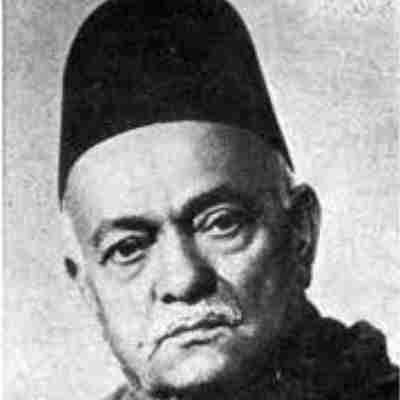
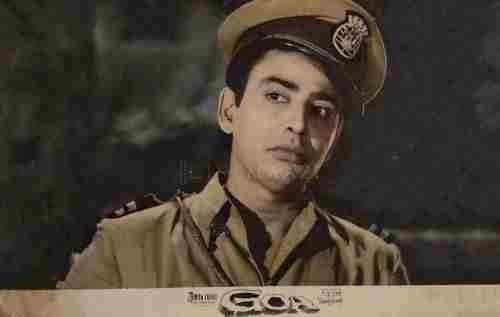
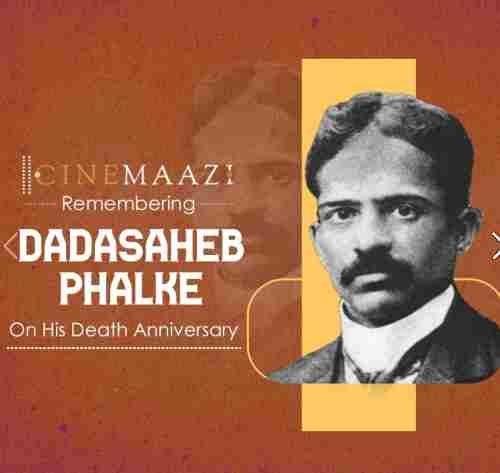
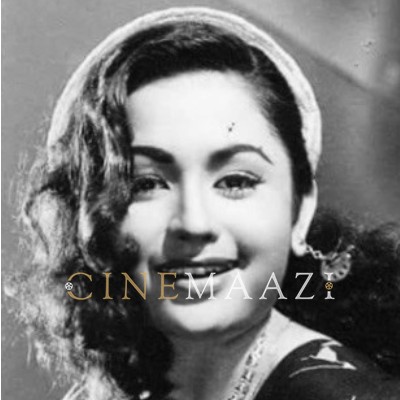
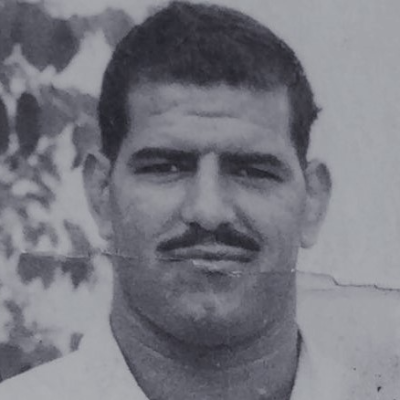
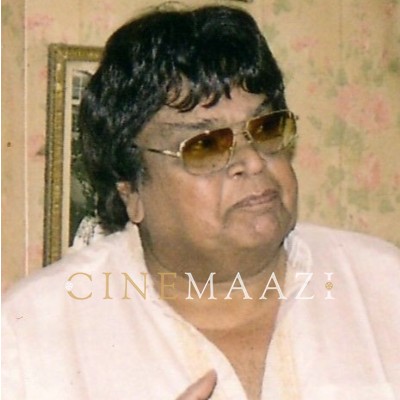
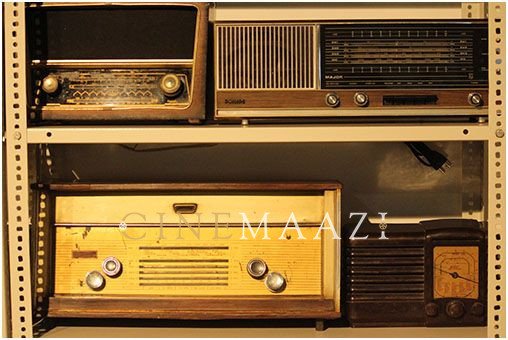
.jpg)



